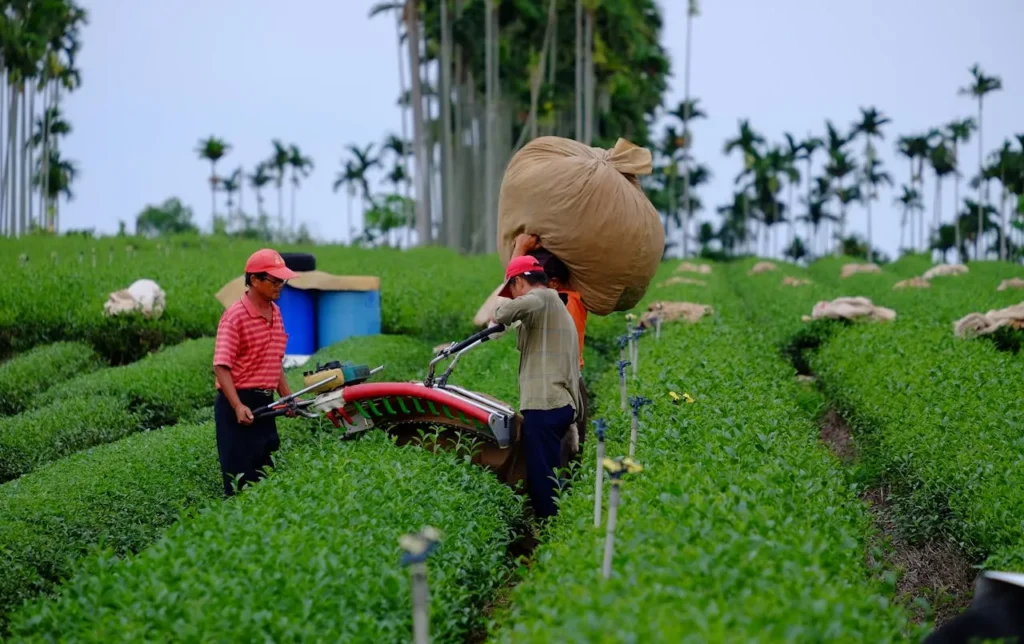
A delegation of prominent journalists from leading African media outlets recently visited PhosAgro’s state-of-the-art production complex in Volkhov, Russia. The visit served as both an in-depth educational tour and a platform to highlight the Russian company’s growing role in enhancing global food security, particularly across the African continent.
The African journalists were given a comprehensive tour of PhosAgro’s modernized production and infrastructure facilities. These included the upgraded phosphoric acid and mineral fertilizer units, the new SK-800 sulphuric acid plant, and a recently built energy complex that recycles process steam into electricity for plant operations. These advanced installations reflect PhosAgro’s continued commitment to innovation and sustainability in agrochemical production.
Strengthening Supply Chains for the Global South
During a high-level meeting with PhosAgro executives, including the company’s First Deputy CEO, Siroj Loikov, the visiting journalists were briefed on the company’s long-term vision and its strategic focus on food security partnerships with countries in the Global South.
Loikov emphasized that PhosAgro not only retains its position as Russia’s leading supplier of mineral fertilizers but has also solidified its role as a trusted supplier to developing regions, especially in Africa. He noted that the company’s exports have nearly doubled over the past decade, reaching 8.6 million tonnes in 2024 alone. Africa, he said, is now a central pillar in PhosAgro’s international development strategy.
“PhosAgro supplies fertilizers to 21 African nations,” said Loikov. “Our top importers include South Africa, Côte d’Ivoire, Ethiopia, Morocco, and Mozambique. Thanks to our broad product range, we are able to meet the diverse needs of farmers across Africa, delivering customized solutions that support higher yields and sustainable farming practices.”
In 2024, PhosAgro’s exports to Africa grew by one-third, totaling 740,000 tonnes. This marks a sixfold increase since 2018. Loikov also reported that this upward trend continued into 2025, with exports rising by another third in the first half of the year compared to the same period in 2024.
The expanded production capabilities at the Volkhov plant, located near key Baltic Sea ports, are expected to play a pivotal role in supporting this growth. With an annual capacity of 1 million tonnes, the plant is strategically positioned to facilitate smooth and cost-effective fertilizer shipments to “friendly countries,” especially those in Africa.
Beyond Trade: Science, Education, and Humanitarian Impact
PhosAgro’s engagement with Africa, however, extends well beyond commercial fertilizer exports. The company is actively involved in humanitarian, scientific, and educational initiatives across the continent in collaboration with international partners.

One of the flagship efforts is the Green Chemistry for Life program, conducted jointly with UNESCO and the International Union of Pure and Applied Chemistry (IUPAC). This initiative provides research grants to young scientists developing advanced chemical technologies for sustainable development. Since its inception, the program has received over 1,000 applications, and 55 grants have been awarded, including 15 to African researchers from countries such as South Africa, Egypt, Kenya, Tunisia, Nigeria, Sudan, and Zimbabwe.
Additionally, more than 200 African researchers have received stipends to attend PhosAgro–IUPAC Summer Schools on Green Chemistry, helping to cultivate a new generation of environmental and agricultural chemists in Africa.
PhosAgro is also an official partner of the African Soil Laboratory Network (AFRILAB), a joint venture with the UN Food and Agriculture Organization (FAO). AFRILAB supports 220 laboratories across 54 African countries, focusing on the analysis of fertilizer quality and soil health monitoring. To date, the project has directly benefited over 11,000 farmers, including 4,500 from more than 20 African countries. Plans are in place to expand the network further in 2025.
Building Knowledge Through Education Platforms
Education is another cornerstone of PhosAgro’s partnership with Africa. The company recently launched Pro Agro Lectorium, a multilingual educational platform offering high-quality resources on agriculture and agrochemistry. The platform provides content in English and Portuguese and features over 420 lectures by nearly 170 global experts, including nine speakers from African countries.
The platform covers a wide array of topics, from crop science and livestock management to digital innovation, sustainable farming, and agricultural economics. PhosAgro has already signed nine cooperation agreements with African universities to integrate the platform into their curricula. Thousands of African farmers, students, and agricultural professionals are already using the platform to expand their skills and access up-to-date scientific knowledge.
“We are proud to support educational transformation and capacity building in Africa,” said Loikov. “By working closely with universities, scientists, international organizations, and local authorities, we aim to strengthen the foundations of Africa’s food and technological sovereignty.”
Cultural Exchange and Corporate Social Responsibility
The African journalists’ itinerary also included a visit to PhosAgro’s Fifteenth Element corporate museum and exhibition center, which showcases the company’s technological evolution and cultural values. The delegation observed a live session of DROZD (Educated and Healthy Children of Russia), a signature social initiative by PhosAgro that promotes holistic child development through free access to education, sports, and moral enrichment.
In keeping with its commitment to spiritual and cultural values, the journalists were also invited to visit St. Andrew’s Cathedral, a historic structure restored by PhosAgro under its Spiritual Revival program. The visit served to illustrate how the company’s community engagement philosophy goes far beyond business operations.
At the conclusion of the visit, the journalists expressed their appreciation to PhosAgro’s leadership and plant staff for the invitation and the opportunity to witness firsthand the company’s advanced capabilities, social initiatives, and dedication to strengthening Africa–Russia cooperation.




